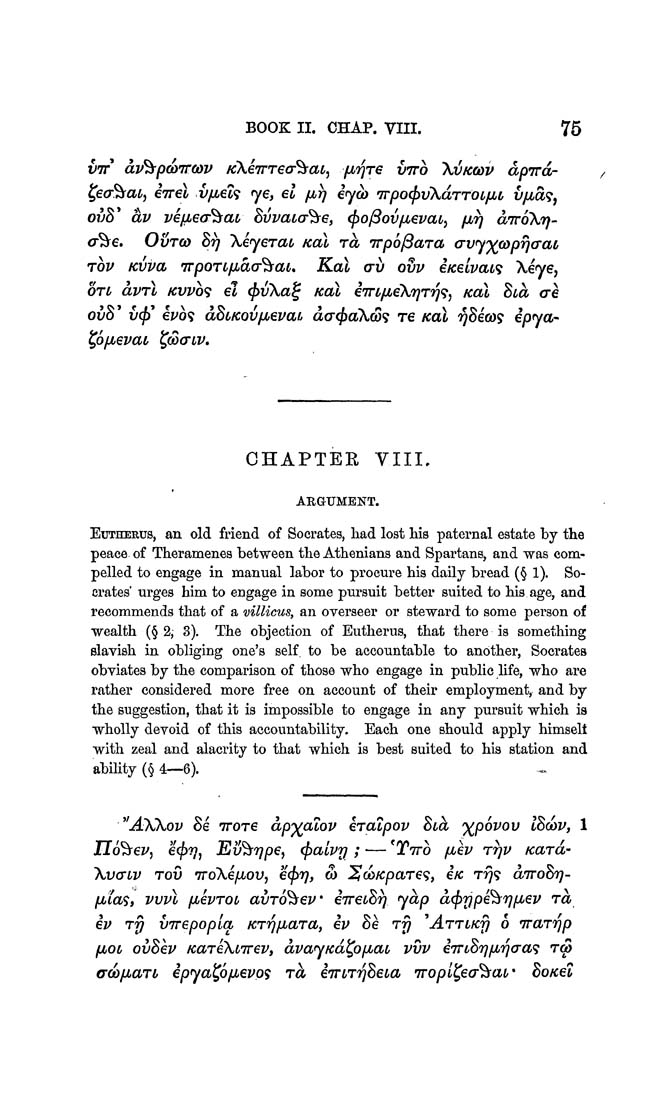BOOK IL CHAP. VIII. 75
VTT dv^pcoTTCOV KXiTTTea^at, ptyTe vTrb Xvkcov dpTrd-
^ea^at, iTrel vptels ye, el ptf) iyco TTpocpvXaTTOtptL vptds,
ovS^ dv veptea^at SvvaLa^e, cpo/Sovfievat, pty dTToXy-
cr^e. Omco 897 XiyeTat Kal Td TTpb^aTa avyxcopyaat
Tbv Kvva TTpOTtpbda^at, Kal av ovv iKelvats Xiye,
OTL dvTl KVvbs el cpvXa^ kol iTTtpteXyTys, Kal Std ae
ot'8' u^' ez'09 dStKovptevat da^aXcos Te Kal ySicos ipya-
^bptevat ^cbatv.
CHAPTEK YIII.
ARGUMENT.
EuTHERUS, an old friend of Socrates, had lost his paternal estate by the
peace of Theramenes between the Athenians and Spartans, and was com¬
pelled to engage in manual labor to procure his daily bread (§ 1). So¬
crates' urges him to engage in some pursuit better suited to his age, and
recommends that of a milieus, an overseer or steward to some person of
wealth (§ 2, 3). The objection of Eutherus, that there is something
slavish in obliging one's self, to be accountable to another, Socrates
obviates by the comparison of those who engage in public hfe, who are
rather considered more free on account of their employment, and by
the suggestion, that it is impossible to engage in any pursuit which is
wholly devoid of this accountability. Each one should apply himselt
with zeal and alacrity to that which is best suited to his station and
ability (§ 4—6).
"AXXov Si TTOTe dpx^tlov eTalpov Std xpovov iScov, 1
Ub^ev, ecpy, Ei^ype, cpalvy ; — 'Ttto ptev Tyv KaTa-
Xvatv TOV TToXipbov, ecpy, & ^coKpaTes, iK t7;9 dTToSy-
pbias, vvvl ptevTot amo^ev* iTTetSy ydp d^ype^yptev Ta
iv Ty vTTepoplci KTyptaTa, iv Se Ty ^ATTtKy b TTaTijp
ptot ovSev KaTeXtTTev, dvayKd^optat vvv iTTtSyptyaas tco
acoptaTt ipya^bptevQS Ta iTTtTySeta TTopl^ea^at* SoKel
|








